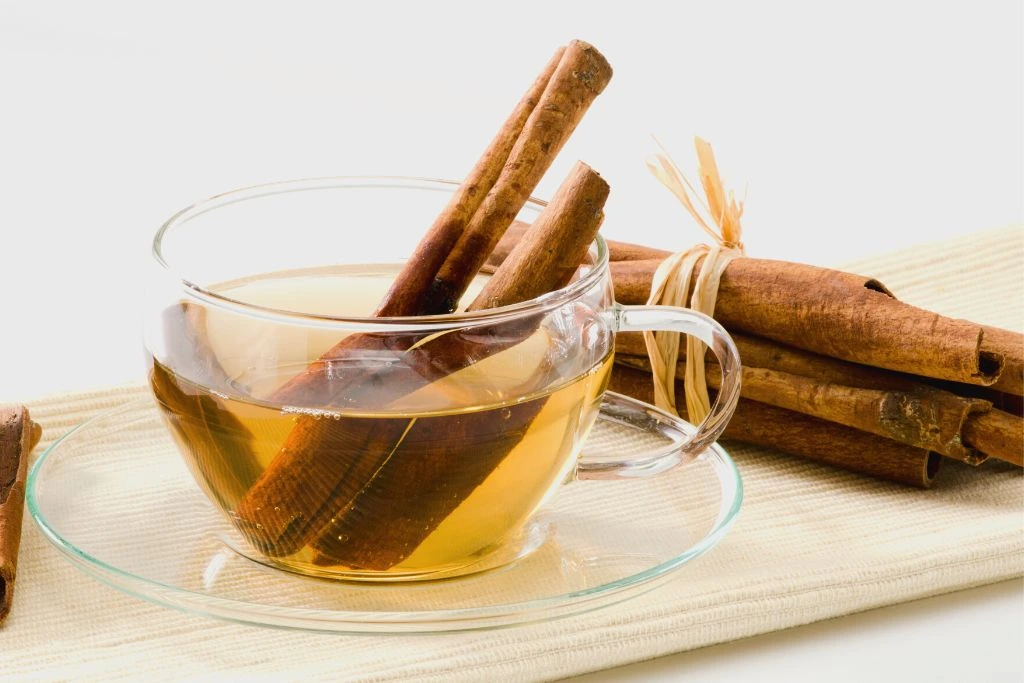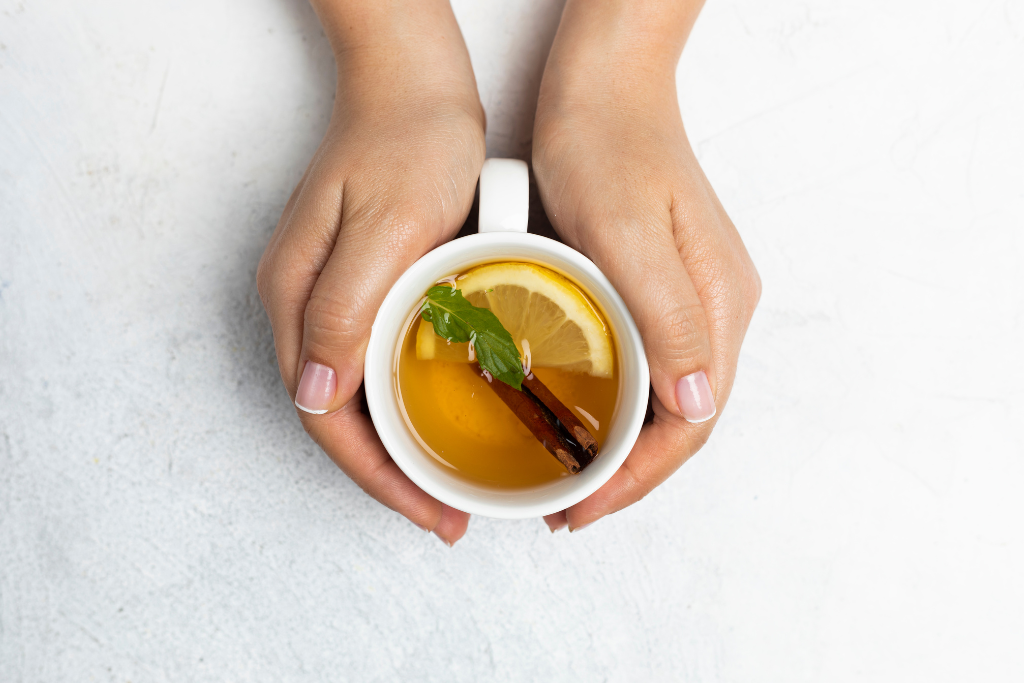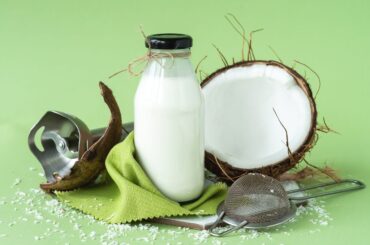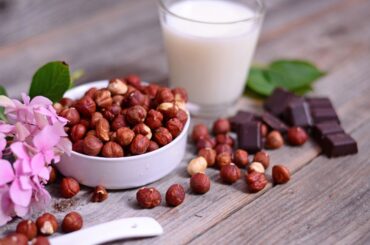Have you been wondering about the taste of cinnamon tea? Do you want to know the basic ingredients and the benefits it offers? Want to learn the basics of preparing this tea?
Cinnamon tea has been known as a warm and comforting beverage for ages. It was highly valued for its medicinal properties and considered a special gift for royalty.
If you like experimenting and exploring new and exciting beverages, this article is designed for you. You will surely enjoy discovering the benefits of drinking cinnamon tea and its aromatic wonders!
What Does Cinnamon Tea Do?

Cinnamon tea comes from the infusion made from the bark of the Cinnamomum tree. This drink has been valued and widely used in traditional medicine and culinary practice for over a century.
The health benefits of cinnamon tea include combating oxidative stress and infections in the body. These cinnamon tea benefits are due to the antioxidant and anti-inflammatory properties present in the beverage.
Additionally, cinnamon tea has a fantastic effect on people with diabetes and those at risk of developing the disease. Consuming this tea regularly maintains the stability of your blood sugar levels.
Studies show that drinking cinnamon tea helps your digestive health by calming the gastrointestinal system.
What Does Cinnamon Tea Taste Like?
Cinnamon tea is described as a “cozy hug in a cup” with its warm, sweet, and spicy taste. It is a special beverage that combines a comforting sweetness and a gentle kick of spice.
What Part of Cinnamon Is Used As Tea?
This tea is made from the inner bark of the Cinnamomum tree. The inner bark is dried and rolled to make a cinnamon stick or cinnamon ground that is used to brew the tea.
Ingredients You Can Use to Enhance Your Cinnamon Tea

Spruce up your brew with these delightful ingredients that will take your tea-drinking experience to a new level. These additions will transform your tea into a sensational treat.
Citrus Zest: Add a zing of flavor with lemon or orange zest, infusing your tea with refreshing citrus notes.
Honey: Sweeten your tea naturally and balance the spiciness of cinnamon with a drizzle of golden honey.
Vanilla Extract: Elevate the taste profile by adding a splash of aromatic vanilla extract to your cinnamon tea.
Almond Milk: Create a creamy and nutty twist by incorporating almond milk, giving your tea a luscious texture.
Fresh Ginger: Boost spiciness and health benefits with a hint of fresh ginger, making your tea even more delightful.
Tips For Brewing The Perfect Cinnamon Tea
Follow these three expert tips for a truly enjoyable tea time and enjoy the warm, comforting tastes and enticing smells:
Choose Quality Cinnamon: To savor the full potential of cinnamon tea, opt for fresh cinnamon sticks or high-quality ground cinnamon that promises rich, authentic flavors.
Steep Wisely: Allow your chosen cinnamon form to steep gracefully in hot water for 5 to 7 minutes, granting ample time for the infusion to reach its full splendor.
Experiment with Proportions: Discover your cinnamon tea perfection by tinkering with the amount of cinnamon used, tailoring it precisely to suit your taste buds.
15 Cinnamon Tea Benefits

Sipping a soothing cup of cinnamon tea offers a delightful experience and many health benefits. Experiencing its wonder is possible when you incorporate it into your daily routine.
Here are the top fifteen cinnamon tea benefits:
Antioxidant Properties
Cinnamon tea contains antioxidants that protect the body from harmful free radicals. Drinking cinnamon tea two to three times weekly is recommended for optimal results. Add one teaspoon of ground cinnamon to hot water and let the particles dissolve fully to make this fantastic tea.
Anti-Inflammatory Effects
The active compounds in cinnamon are useful in reducing body inflammation, which helps prevent pain, swelling, and other heart problems. Adding lemon to your two to three times weekly tea sessions is advised for added flavor and vitamin C.
Blood Sugar Regulation
Cinnamon is known for having bioactive compounds that mimic insulin. Since we want to avoid a sugar spike in a cup, it is best to use unsweetened almond milk for extra creaminess and flavor.
Heart Health
Drinking cinnamon tea twice or three times a week can help lower the bad cholesterol in your body, making it beneficial for your heart. You may use cinnamon sticks as an alternative to cinnamon ground to make this hearty drink.
Digestive Aid
Aside from the warm flavor of cinnamon tea, this drink is helpful for those who want to calm a bloated stomach after a meal. It is a natural remedy used about two to three times weekly to prevent tummy discomfort. Add a cinnamon stick to boiled water and let it sit for 5 to 7 minutes to enjoy that perfect cup.
Weight Management
You may want to note that when your blood sugar level is stable, you won’t always crave sugary snacks. That’s how cinnamon tea helps you manage your weight. Just drink cinnamon tea regularly, two to three times a week, to get this effect.
Brain Function
Did you know that cinnamon tea is good for your brain, too? Yes! This is due to the antioxidant properties present in this drink. Drink cinnamon tea about two to three times a week, or as advised, to maintain a sharp and healthy brain.
Antibacterial And Antifungal Properties
Cinnamon tea is considered a superhero for your body! It is known to fight harmful bacteria and fungi that weaken the immune system. Prepare this sumptuous tea two to three times a week with essential ingredients such as a cinnamon stick, one cup of water, and a teaspoon of honey for added sweetness.
Immune System Support
Looking for the perfect body defense? Cinnamon tea is believed to help your immune system fight off germs and illnesses. When consumed two to three times a week, this drink will enable your body to stay healthy and protected.
Menstrual Health
A soothing hug during that time of the month is how cinnamon tea is described. This beverage aids in easing menstrual cramps’ discomfort-causing symptoms. Prepare a comforting cup of cinnamon tea by carefully adding a cinnamon stick to the hot water for 5 to 7 minutes. The calming effect of this beverage will help you feel better during your period.
Bone Health
Cinnamon tea is packed with calcium, which is essential for maintaining strong and healthy bones. Drinking this bone-boosting tea two to three times a week will keep your bones happy and sturdy.
Skin Health
“Beauty potion in a sip” is how you can best describe cinnamon tea. It is an antioxidant-rich beverage that shields your skin and complexion from potential harm from the sun’s UV rays and pollution. To sip the tea’s goodness, stir one cinnamon stick into the hot water for 5 to 7 minutes and see your skin glow.
Relaxation and Stress Reduction
Have you been stressed lately? Cinnamon tea can be a friendly drink you can count on! Consuming this tea about two to three times a week will help soothe your nerves and further reduce your body’s stress and mental pressure. You may add an optional sweetener, like honey, to fight off the blues.
Oral Health
One of the benefits of cinnamon tea is that it promotes good oral health. It is known to fight harmful bacteria that lead to cavities and bad breath. Cinnamon tea, a mouthwash-like drink that keeps your teeth looking and feeling fresh, should be consumed twice or thrice weekly to maintain your general mouth health.
Antiviral Effects
“Cinnamon tea is a powerful shield in a cup.” The properties present in this drink enable the body to fight off harmful viruses, especially during flu season or when you feel a bit under the weather. You can prepare a virus-fighting drink by putting a cinnamon stick in hot water for 5 to 7 minutes. Don’t forget to smell this aromatic tea for a stronger you.
Cinnamon Tea Side Effects
While cinnamon tea is a beneficial drink, it also has side effects for its drinker, especially when consumed excessively.
Here are four common cinnamon tea side effects:
Allergic Reactions
This may manifest as skin rashes, itching, or difficulty breathing. It is advisable to avoid consuming cinnamon or other related plants to prevent the symptoms mentioned above.
Gastrointestinal Discomfort
Cinnamon tea may lead to heartburn, nausea, and even diarrhea when consumed excessively. The coumarin compound content of this tea is harmful when taken in large amounts.
Liver Toxicity
A coumarin compound present in cinnamon tea is considered toxic to the liver. Coumarin can further damage and strain your liver when consumed in excess amounts.
Lower Blood Sugar Levels
Drinking large amounts of cinnamon tea may lead you to acquire a disease called hypoglycemia, a condition that occurs when the level of glucose present in your blood drops below what is considered healthy.
Cinnamon Tea Nutritional Facts
Cinnamon tea is widely known for its unique, soothing taste and beneficial properties. Given below are the estimated cinnamon tea nutritional facts based on typical serving sizes:
- Calories: 5 to 10
- Carbohydrates: 1 to 2 grams
- Protein: 0
- Fat: 0
- Saturated Fat: >1 gram
- Cholesterol: 0
- Sodium:0
- Potassium: at least 1 gram
- Sugar: 0
- Vitamin: Vitamin C and Vitamin A
- Calcium: at least 1 gram
Disclaimer: It’s important to note that adding more sweeteners or high-fat milk can increase your cinnamon tea’s calorie and sugar content. This drink may be beneficial, but excessive intake of cinnamon tea may also cause different side effects.
FAQs
What Happens If I Drink Cinnamon Tea Every Day?
Drinking cinnamon tea daily offers many potential benefits, such as anti-inflammatory effects, antioxidant properties, and blood sugar level regulation.
What Are the Benefits Of Cinnamon Tea?
Consuming cinnamon tea regularly will help you manage your blood sugar levels, reduce heart disease, aid in digestion, and boost your immune system.
Is It Good To Drink Cinnamon Tea At Night?
Yes, because drinking cinnamon tea at night offers warming properties that help promote digestion and better sleep.
When Is The Best Time To Drink Cinnamon Tea?
It depends on your preferences and health goals. Some may have cinnamon tea in the morning to boost metabolism, while others love having it after meals to help digestion.
Who Should Not Drink Cinnamon Tea?
Pregnant women should avoid cinnamon tea because it may stimulate the uterus. An excessive amount of cinnamon intake may lead to possible complications that are critical for the overall wellness of the mother.
Can You Drink Cinnamon Tea On An Empty Stomach?
Yes, others drink cinnamon tea even before breakfast since it helps them regulate blood sugar levels and boost metabolism throughout the day.





